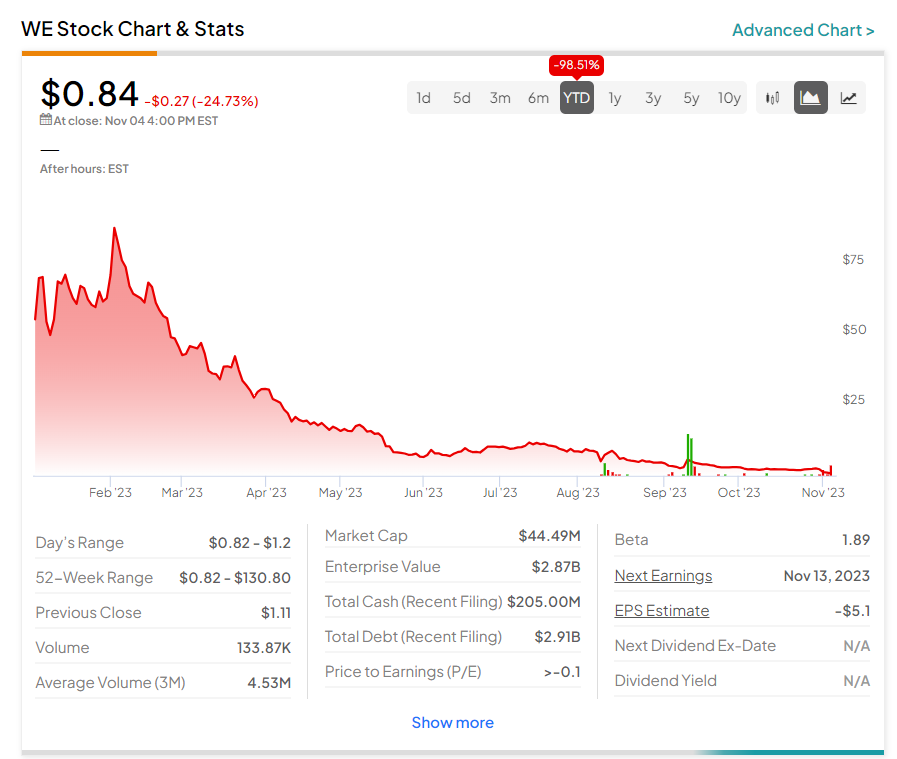WeWork (NYSE:WE) has filed for Chapter 11 protection in the U.S. Bankruptcy Court despite several efforts to turn around the business. It is worth mentioning that the flexible office space provider, which was valued at about $47 million during its peak, closed yesterday with a market cap of a mere $44 million.
In its bankruptcy filing, the company reported liabilities between $10 billion and $50 billion. Also, WeWork disclosed that the filing is limited to the company’s locations in the U.S. and Canada.
What Caused WeWork’s Downturn?
WeWork has faced several challenges in recent years. The company’s highly anticipated initial public offering (IPO) in 2019 had to be withdrawn due to investor skepticism and concerns about its financial health. This setback marked the first major blow to the company.
Moving on, the pandemic had a significant impact on WeWork’s performance. The widespread adoption of remote work in 2020 and 2021 due to the lockdown led to a sharp fall in demand for flexible office spaces. This resulted in a significant decline in revenue and occupancy rates for the company.
Additionally, WeWork’s rapid expansion and aggressive spending practices contributed to financial instability, resulting in significant losses and a heavy debt load. Despite the company’s efforts to restructure and regain stability, the frequent changes in its leadership posed challenges to its turnaround efforts.
In August, WeWork indicated higher member churn, weaker demand, and the challenging macro environment as key reasons for its underperformance and losses. For the six months ended June 2023, WE delivered a net loss of $0.7 billion. Also, its balance sheet reflected cash and cash equivalents of $205 million and long-term debt of $2.91 billion.
What is Going to Happen to WeWork?
Yesterday, the company disclosed that it entered into a restructuring support agreement with holders of about 92% of its secured notes. The move is expected to reduce WeWork’s existing debt and expedite the restructuring process. Also, WE is making efforts to reduce its portfolio of office leases.
However, it remains unclear how much boost these strategic actions could provide to WeWork stock. Year-to-date, shares of the company have dropped over 98%.

















